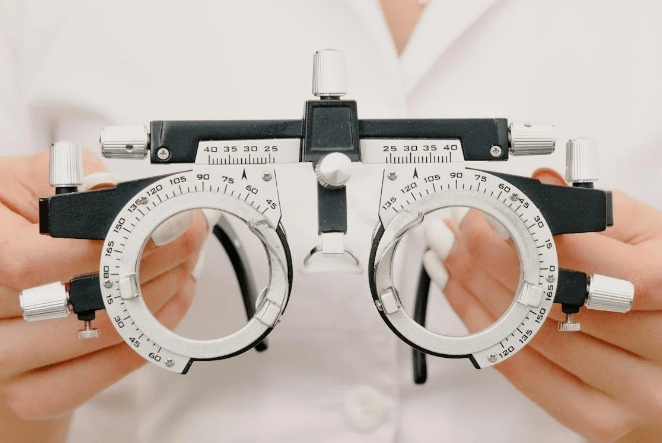Optometrist
An optometrist is a health care provider who focuses on the health of one’s eyes. Whether it is eye health, visual performance, or optic lenses, and optometrist is the expert in those fields. In order to be an optometrist, one must have earned a degree in the field of optometry, be registered with the Optometry Board, and often times obtain additional training for additional eye treatments or updates within the field.
When one achieves the status of optometrist, they are able to diagnose and manage various diseases of the eye and treat any injuries or disorders that one may experience. An optometrist is also able to prescribe eyeglasses well as contact lenses when a patient requires visual support. Patients will oftentimes schedule regular eye exams for check-ups regarding their vision or any possible disorders or if they happen to be dealing with a noticeable and bothersome vision problem. In those cases, the optometrist examines the patient’s eyes and uses an array of vision tests to make a diagnosis.
An optometrist is often the first level of care for people with eye or vision problems and will have to refer a patient to an ophthalmologist if a patient’s vision issues are more severe and above the educational level of the optometrist. While an optometrist can assist a patient with understanding what may be wrong with their eyes, an ophthalmologist would be the medical professional to provide any required surgeries. Whether it is laser surgery, dealing with a serious condition such a macular degeneration or diabetic retinopathy, or any other type of surgery, an ophthalmologist is what one would require and an optometrist would appropriately recommend any of their patients to get the treatment they require. For any other issue, an optometrist is the medical professional that one would require.
Signs to See an Optometrist
Oftentimes if an individual is sick, they know that they have to see a doctor. If an individual has a toothache, they understand that they need to see a dentist. But when does one need to see an optometrist? When it comes to requiring the services of an optometrist, the signs often focus on one’s vision. With symptoms ranging from double or blurred vision, having itchy or dry eyes, or having difficulty reading small writing, one can assume they need to see an optometrist to see what is causing their issue. Individuals may also suffer headaches and dizziness, which is not as obvious of a sign to see an optometrist, however, when headaches or dizziness are paired with vision issues, the type of medical professional that a client requires becomes more obvious. Optical shop singapore experts can help you with a wide variety of eye services, including eye examinations, eye care, and providing you with the perfect eye glasses for your eyes.
When a client experiences this range of symptoms, an optometrist can diagnose a variety of eye disorders and vision problems. Some of the common conditions that optometrists diagnose consist of cataracts and glaucoma. The solution to the symptoms a client is experiencing may also be a direct result of not using glasses or contact lenses, which an optometrist can prescribe. While symptoms for vision aid assistance, glaucoma, and cataracts are more obvious, not all eye disorders are as easy to diagnose.
With yearly comprehensive eye exams, an optometrist can discover any potential ailments of the eye that are less obvious and can work to correct the issue earlier before it worsens. During a comprehensive eye exam, an optometrist will test one’s visual acuity while using the Snellen Eye Chart. For patients who have a refractive error, or do not have 20/20 vision, the optometrist will run tests that allow them to determine the appropriate prescription, analyze the light reflex from one’s eye, and measure distortions or aberrations in the cornea and lens of the eye. Patients may also have a test in which their pupils are dilated so that the optometrist can examine further back into one’s eye.
Optometrist visits should not be delayed until a problem is present. Regular eye exams can allow clients and optometrists to be more proactive as opposed to reactive to potentially avoid any vision or eye issues altogether. Children should have their first comprehensive eye exam at six months old and should have follow-up exams at age 3 and age. After the age of 6, assuming there are not issues, optometrist appointments should take place every two years. Adults also require regular optometrist visits at higher frequency as their age increases. For any individual, child or adult, catching disorders of the eye early on can have a detrimental impact on the rest of their life.
If you are searching for an optometrist, Zoom Optics Macquarie Centre can help you answer any further questions that you may have about eye care.

